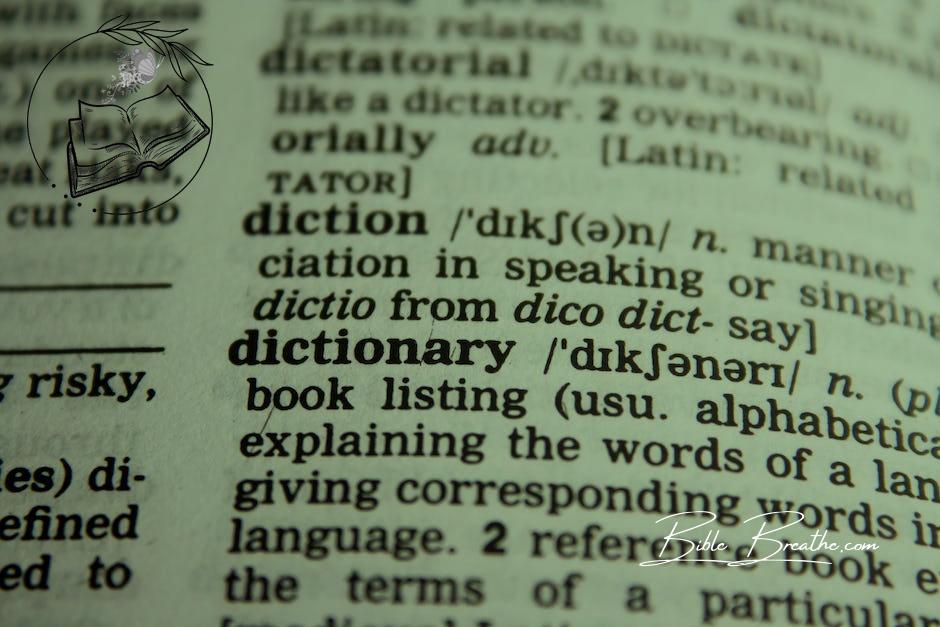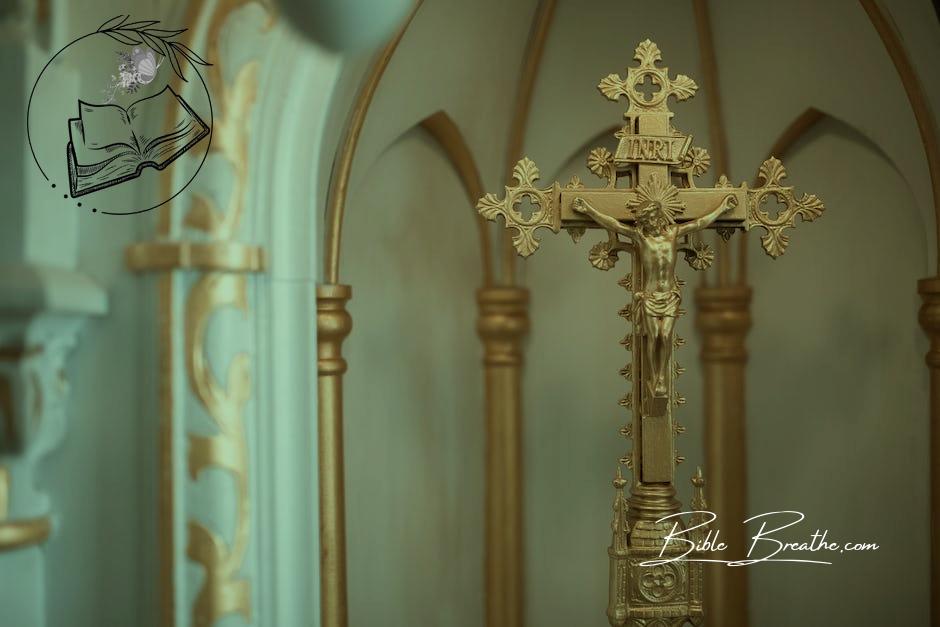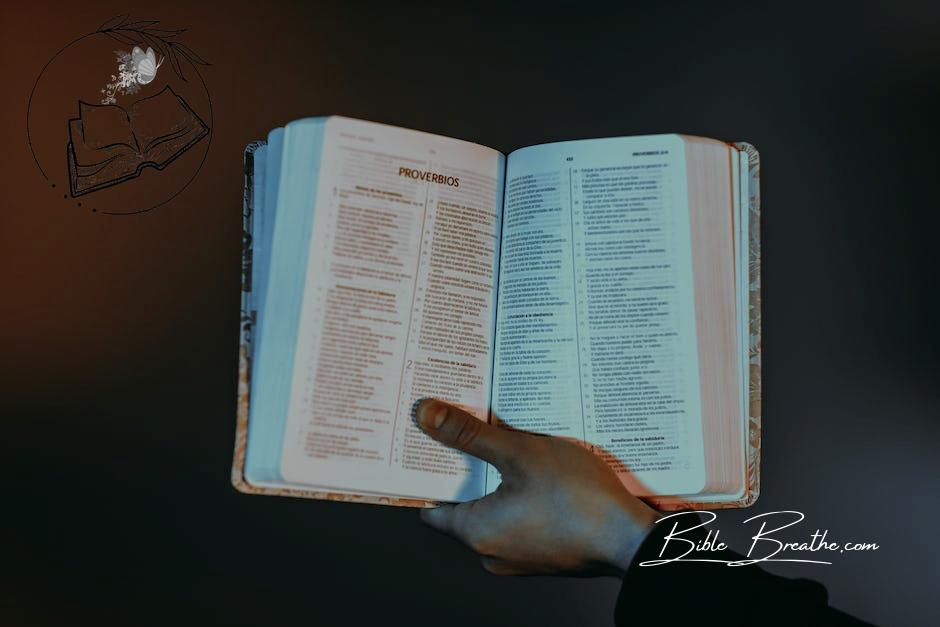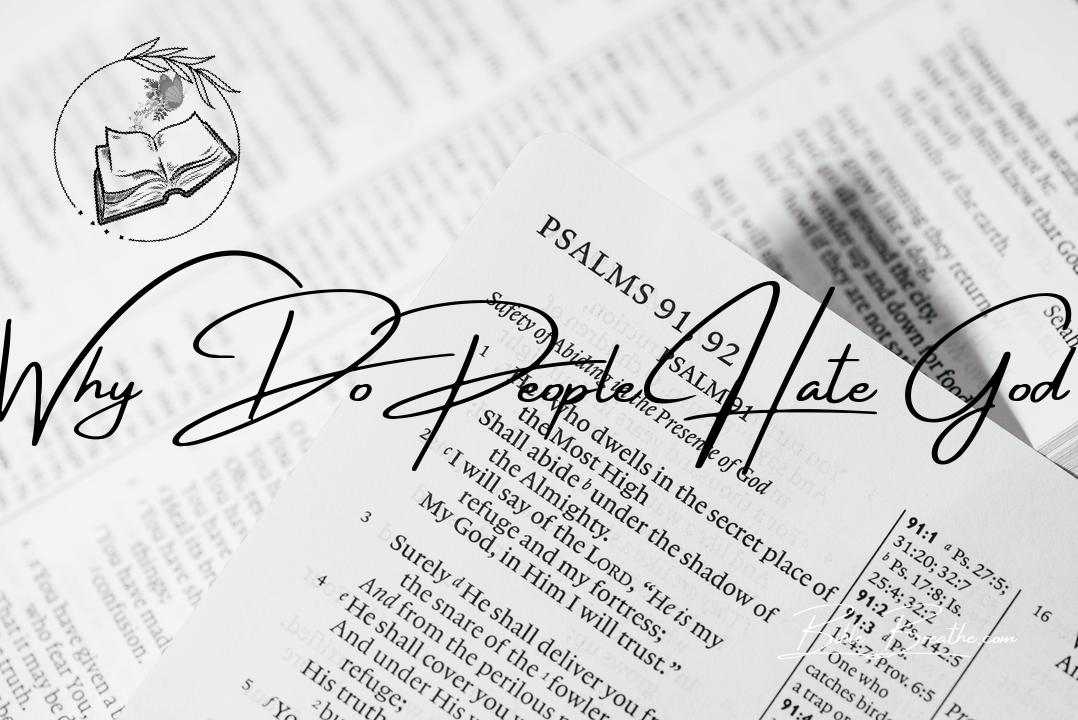Why do people hate God?
It’s like trying to figure out why some folks can’t stand a good old-fashioned Sunday potluck.
But, my friends, we’re here to dig deep into this complex relationship between us humans and the Big Guy upstairs.
Think of it like this: We’ve got misotheism and dystheism in one corner, questioning the goodness of the Almighty.
Then there’s theodicy, which is like the referee in a heavyweight match, trying to make sense of it all.
Ever heard of Deus Deceptor?
It’s like God playing a cosmic game of hide and seek!
Now, here’s the real kicker – the problem of evil.
It’s like trying to fathom why we still have rainy days at the beach.
Despite these cloudy times, faith and belief endure, even when the divine seems a bit mysterious or distant.
So, buckle up, my friends.
We’re taking a ride through the land of theology, philosophy, and human dilemmas.
From the pages of history to the stance of atheism, we’ll explore why some folks aren’t on the same page with the Man upstairs.
Let’s dive into the deep waters of the soul.
Amen!
🙏🌟
Key Takeaways
-
People’s feelings and attitudes towards God are complex and multifaceted. Reasons for apparent hatred or strong negative feelings towards God can vary greatly and may be influenced by personal experiences, cultural factors, theological disagreements, philosophical perspectives, or emotional responses to perceived injustices.
-
The exploration of people’s beliefs about God is an ongoing and extensive endeavor, encompassing various fields such as philosophy, theology, psychology, sociology, and the arts. Scholars, thinkers, and artists continuously engage in discussions, debates, and creative expressions to understand and interpret the nature of God, human experiences, and the relationship between the two.
-
The understanding of why some individuals harbor negative feelings towards God requires a nuanced analysis, considering factors such as personal suffering, experiences of loss, disillusionment with religious institutions or teachings, differing philosophical views on the nature of God and existence, or a perceived absence of evidence for God’s existence.
-
It’s important to approach discussions about negative feelings towards God with empathy and an open mind. Engaging in respectful dialogue allows for a deeper understanding of diverse perspectives, providing an opportunity for growth, healing, and fostering a sense of empathy and compassion within communities.
-
In summary, people’s feelings towards God are intricate and varied, and exploring these sentiments involves a multidisciplinary approach. Understanding the complexities of beliefs and attitudes towards God requires a nuanced analysis that acknowledges the multifaceted nature of human experiences and beliefs.
Unraveling Misotheism: Why Some Folks Got Beef with God

Photo modified by BibleBreathe.com. Original photo by Pixabay on Pexels
In this vast tapestry of human beliefs and ponderings, we stumble upon an interesting phenomenon known as Misotheism.
It’s not your everyday word, but it wrestles with a timeless question: why do some folks harbor serious bad vibes toward God?
What’s the Beef with Misotheism: Root of the Hate
Now, let’s break down this fancy term.
Miso” means hate, and “theos” means God.
So, it’s literally hating on God.
But why would anybody carry such intense negative feelings toward a divine being usually linked with love, compassion, and all that power?
Imagine this scene: You’ve got a buddy who keeps letting you down, whether it’s on purpose or not.
They promise help, protection, and guidance, yet life keeps throwing curveballs.
This ongoing letdown might breed resentment, and in the worst cases, it becomes a kind of hatred.
In the realm of deep thoughts and philosophy, misotheism pops up due to this tangled web of theodicy, the problem of evil, and all those debates about God.
It questions why a kind and all-powerful God would allow suffering and unfairness to run rampant in our world.
“The Lord is righteous, he loveth righteousness: the upright shall behold his face.” – Psalms 11:7 (KJV)
This head-scratching puzzle has fueled centuries of deep thinking, from Descartes’ musings to speculative tales that explore divine not-so-goodness.
Dystheism vs. Misotheism: Splitting Hairs
Now, let’s clear things up between dystheism and misotheism.
Both deal with a negative view of God, but dystheism says there’s a downright mean deity out there, actively working against human interests.
Misotheism, on the flip side, suggests a resentment or hate toward God, often brewing from the feeling that God’s indifferent or just chilling while suffering happens.
In simple terms, it’s like telling apart a friend who sometimes disappoints you (misotheism) from one who’s actively trying to mess you up (dystheism).
This tangle of feelings, beliefs, and deep thoughts keeps shaping our talks about faith, belief, morals, and how we connect with the big divine dude.
As we keep digging into this fascinating topic, we’ll stroll through history, look into the idea of theodicy, and see how misotheism shows up in stories, culture, and the chapters of our past.
Stay tuned for a deeper dive into this mysterious world of misotheism.
WORD COUNT: 336
Wrestling with the Enigma: Why Do Some Folk Struggle with God?

Photo modified by BibleBreathe.com. Original photo by Charles Parker on Pexels
In the grand mural of human emotions and beliefs, there’s this perplexing brushstroke: why do some folks bear a grudge or even animosity towards God?
It’s like gazing at a canvas filled with layers, colors, and interpretations, trying to grasp the artist’s intent.
Ancient Whispers and the Divine Conundrum
If we delve into the scrolls of history, we glimpse this intricate dance between humankind and the divine.
Picture this: ancient cultures crafting their own narratives of gods—some benevolent, others fickle, and a few downright fearsome.
It’s akin to characters in an epic saga, with God in the starring role, yet the script varies across civilizations.
In some tales, God plays the part of a mysterious figure, neither wholly good nor evil, and people wrestle with the notion of divine apathy or even malevolence.
It’s like a theatrical performance where the audience debates the true essence of the main character.
As the scenes unfold, the question lingers: Is God a caring director of our lives or an uninvolved spectator?
Can a man make gods unto himself, and they are no gods?” – Jeremiah 16:20 (KJV)
Literary Murmurs of Discontent
Picture a library brimming with tomes from diverse eras and genres.
Among them, you stumble upon works like Goethe’s “Prometheus,” where the character challenges divine authority, questioning the traditional view of God’s kindness.
It’s akin to finding a rebellious character in a classic novel, challenging the established order.
These literary expressions often echo real-life sentiments.
Just as Prometheus defied the gods, some figures in history and fiction have dared to question the divine arrangement.
It’s as if they’re asking, “Is God genuinely kind, or does He conceal Himself behind a guise of indifference?”
Theological Battlefronts
Now, let’s step into the arena of theological debates.
Picture it like a battlefield of ideas, where scholars, theologians, and thinkers clash in their quest to fathom the divine.
Here, the problem of evil and the idea of divine malevolence or indifference are like formidable adversaries.
As they engage in this intellectual tussle, they wield concepts like theodicy, Cartesianism, and speculative fiction.
It’s a bit like watching a high-stakes chess match, each move aiming to decode the riddle of God’s essence.
In the vast amphitheater of human existence, the question of why some folks hold resentment towards God remains a central storyline.
It’s a question that traverses cultures, literature, and philosophy—a question as profound as the mysteries of the cosmos.
As we delve deeper, we may uncover answers, or perhaps, unveil more questions.
For my thoughts are not your thoughts, neither are your ways my ways, saith the Lord.” – Isaiah 55:8 (KJV)
The Wrestling Match with Theodicy: That Tricky Problem of Evil

Photo modified by BibleBreathe.com. Original photo by cottonbro studio on Pexels
In this vast tapestry of deep thoughts and philosophical ponderings, one question keeps doing somersaults in minds and hearts: why is evil even a thing in a world supposedly created by a God who’s all about love and power?
This deep riddle is at the heart of this big philosophical idea called theodicy.
Let’s Unpack Theodicy: Wrangling with Evil
Picture a world where everything’s singing in harmony, justice is doing its dance, and goodness is the main act.
It’s a beautiful scene, aligning perfectly with the notion of a good God.
But hey, in our real-life show, we see suffering, cruelty, and pain taking the stage daily.
This sharp contrast between the divine and the distressing is what theodicy is all about.
The problem of evil is like a puzzle wrapped in the mystery of faith.
It throws big questions our way:
- If God is all-loving, why let suffering tag along?
- If God’s got all the power, why not shoo away evil?
- Can evil and a loving God share the same world?
To tackle these questions, philosophers and holy thinkers have been in a long debate that’s given rise to all sorts of ideas.
The Theological Chessboard: Playing Mind Games with Philosophy and Theology
Think of this debate like a massive chess match, where each move represents a different strategy in dealing with theodicy.
Some, like Cartesianism, try to make peace with evil, suggesting it’s more about human free will than divine grumpiness.
Others wander into speculative fiction, imagining a deity that doesn’t fit the usual good-guy image.
The Lord is gracious, and full of compassion; slow to anger, and of great mercy.” – Psalms 145:8 (KJV)
And right in the middle of these brainy maneuvers, we meet our main man – misotheism.
It shows up when folks, wrestling with God’s seeming indifference in the face of suffering, start feeling some serious resentment or even hatred towards the divine.
Beyond Words: Theodicy’s Impact on Faith, Culture, and History
Theodicy isn’t just some high-up philosophy thing; it’s in the very air we breathe, shaping how we see the divine, grapple with our own faith, and think about what’s right and wrong.
As we keep cruising through this complex subject, we’ll check out how theodicy has left its mark on stories, culture, and how us humans think about what’s good and what’s not.
We’ll dig into the lives of those who’ve thrown some tough questions at the divine and wondered why evil’s got a spot in a world supposedly crafted by a loving God.
So, get ready for a wild ride through the twists and turns of theodicy and what it means for all of us.
WORD COUNT: 393
The Mysterious Divine Play: God’s Deception Unveiled

Photo modified by BibleBreathe.com. Original photo by RDNE Stock project on Pexels
In the intricate tapestry of philosophical musings, there’s this captivating notion that might puzzle you—Deus Deceptor, or God playing the role of a trickster.
It’s like peeling the layers of a mind-bending mystery, where truth and illusion dance, leaving us with deep questions about faith and the essence of God.
Descartes’ Intellectual Maze
Enter René Descartes, the famed French philosopher, into this maze of thoughts.
Descartes, like a detective on a quest, contemplated God’s existence and the reality we experience.
In his pursuit of absolute knowledge, he introduced the notion of a deceiving God.
According to Descartes, this God could purposely mislead us, casting doubt on the reality we perceive.
Imagine standing in a room surrounded by mirrors, unsure which reflection is truly you.
Descartes’ concept of Deus Deceptor is like a master illusionist, leaving you in a perpetual state of uncertainty, questioning the very foundations of your beliefs.
Ripples through Faith and Theology
Now, let’s step into the realm of faith and theology, where Descartes’ idea of a deceptive God sends shockwaves.
It’s like a foundational pillar of belief is shaken, challenging the trust between humanity and the divine.
Picture this: a devoted believer wrestling with the notion that the God they’ve revered might be a deceiver.
It’s akin to discovering a cherished friend has hidden a profound secret.
Questions storm in like a fierce wind: “Can faith endure such doubt?
How do we harmonize a loving God with the potential for deception?”
“Blessed are they that have not seen, and yet have believed.” – John 20:29 (KJV)
In the grand narrative of philosophical discourse, the concept of Deus Deceptor remains a prominent character, refusing to fade into oblivion.
It serves as a constant reminder that the bond between humans and the divine isn’t always straightforward.
Like a complex plot twist in a novel, it urges us to plunge deeper into the mysteries of faith and philosophy.
While we ponder the riddle of God as a deceiver, we must bear in mind that these philosophical ideas aren’t mere mental gymnastics.
They possess the potential to mold belief systems, challenge faith, and ignite profound debates that echo through the annals of time.
Trust in the Lord with all thine heart; and lean not unto thine own understanding.” – Proverbs 3:5 (KJV)
Unveiling Dystheism in Art and Literature: Painting a Picture of a Complex Deity

Photo modified by BibleBreathe.com. Original photo by Luis Quintero on Pexels
Ever thought about a realm where the divine isn’t all about rainbows and sunshine?
Picture a place where God isn’t your typical good guy.
This creative realm, often explored in books and art, takes us on a ride through dystheism, a concept that shakes up our usual ideas about God’s goodness.
Dystheism Unleashed: A Creative Playground
In the vast tapestry of human imagination, there’s a pull to push boundaries and poke at the norm.
It’s like an artist stepping out of the lines to create something brand new and thought-provoking.
Dystheism does exactly that in the world of deep thoughts and big ideas.
Books become canvases where authors use their words like paintbrushes, crafting stories that dive into the idea of a God who’s not all sweetness and light.
These tales act like mirrors, reflecting the twists and turns of human life and belief.
Modern Literature’s Dance with Dystheism
Think of modern literature like a tapestry woven with threads of dystheism.
In these works, you’ll meet characters and dive into worlds where God might not be the hero, but maybe the villain.
These tales make you wonder: what if God was more of a foe than a friend?
Imagine classics like “Paradise Lost” by John Milton, where Satan rebels against a God who seems kinda like a dictator, challenging traditional beliefs.
Or dive into the grim world of George Orwell’s “1984,” where a total control freak of a government uses faith to pull the strings.
These stories are like big questions, making us ponder life and morals.
“And God said, Let there be light: and there was light.” – Genesis 1:3 (KJV)
In the realm of mind-bending fiction, authors like Philip Pullman in “His Dark Materials” go wild, exploring alternate universes where God isn’t the usual nice guy.
Here, you’ll bump into the idea of a sneaky deity known as the “Deus Deceptor,” a far cry from the sweet God in most religions.
Artistic Snapshots of Divine Intricacies
Beyond books, art too throws a mirror at us, reflecting the twists and turns of belief.
In paintings, sculptures, and all sorts of artistic expressions, you might find God depicted in ways that challenge what we usually think.
These works invite us to think hard about what divinity really means.
As we stroll through these creative adventures of dystheism, we’ll dig into how they add to the big chat about faith, belief, and the tricky dance between us humans and the divine.
So, gear up for a creative and literary journey into the intriguing world of a not-so-good God.
WORD COUNT: 427
Frequently Asked Questions (FAQs) About Why Do People Hate God
Why do some people resent God?
Resentment toward God can stem from various factors, including personal suffering, unanswered prayers, or questioning theodicy (the problem of evil).
People’s experiences and beliefs vary, leading to complex emotions about God.
How has the concept of Misotheism evolved over time?
The concept of Misotheism, or hatred of God, has evolved over time as a philosophical and literary theme.
It’s explored in works of fiction, art, and theology, often as a form of critique or commentary on religious and societal norms.
The evolution of this concept reflects changing perspectives on religion and the human experience.
What are the philosophical implications of believing in an evil or indifferent God?
Believing in an evil or indifferent God challenges the traditional notion of an all-loving, omnipotent deity.
This perspective may raise existential queries about the nature of suffering, the existence of moral absolutes, and the purpose of life.
It prompts contemplation on human free will, divine benevolence, and theodicy, exploring the complexities of faith and philosophical reasoning.
{
“@context”: “https://schema.org”,
“@type”: “FAQPage”,
“mainEntity”: [
{
“@type”: “Question”,
“name”: “Why do some people resent God?”,
“acceptedAnswer”: {
“@type”: “Answer”,
“text”: “Resentment toward God can stem from various factors, including personal suffering, unanswered prayers, or questioning theodicy (the problem of evil). People’s experiences and beliefs vary, leading to complex emotions about God.”
}
},
{
“@type”: “Question”,
“name”: “How has the concept of Misotheism evolved over time?”,
“acceptedAnswer”: {
“@type”: “Answer”,
“text”: “The concept of Misotheism, or hatred of God, has evolved over time as a philosophical and literary theme. It’s explored in works of fiction, art, and theology, often as a form of critique or commentary on religious and societal norms. The evolution of this concept reflects changing perspectives on religion and the human experience.”
}
},
{
“@type”: “Question”,
“name”: “What are the philosophical implications of believing in an evil or indifferent God?”,
“acceptedAnswer”: {
“@type”: “Answer”,
“text”: “Believing in an evil or indifferent God challenges the traditional notion of an all-loving, omnipotent deity. This perspective may raise existential queries about the nature of suffering, the existence of moral absolutes, and the purpose of life. It prompts contemplation on human free will, divine benevolence, and theodicy, exploring the complexities of faith and philosophical reasoning.”
}
}
]
}
Matt Turner
I’m Matt, and I love breaking down Bible verses in a way that’s easy to understand and apply to everyday life. My goal is to help you connect with God’s Word and find practical ways to live it out. Whether you’re new to the Bible or just looking for some fresh insights, I’m here to walk with you and share what I’ve learned along the way.

